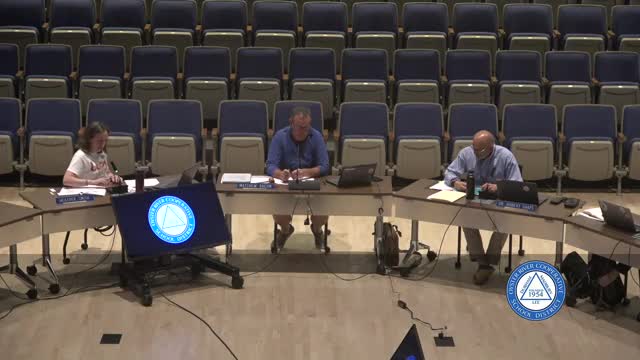School Board Discusses Open Enrollment's Impact on Local Education Control
July 26, 2025 | Oyster River Coop School District, School Districts, New Hampshire
This article was created by AI summarizing key points discussed. AI makes mistakes, so for full details and context, please refer to the video of the full meeting. Please report any errors so we can fix them. Report an error »

The Oyster River Coop School District's recent school board meeting on July 23, 2025, highlighted significant concerns regarding open enrollment policies and their implications for local educational control. The discussions centered on the financial and administrative burdens that such policies could impose on public school districts in New Hampshire.
A key point raised during the meeting was the incompatibility of open enrollment with the state's funding structure for public education. Unlike many other states, New Hampshire primarily relies on local property taxes to fund its schools, leading to a substantial gap between state adequacy funding and actual per pupil costs. This discrepancy means that individual school districts must independently set tax rates to cover shortfalls, particularly in special education. The board emphasized that no existing legislation adequately addresses these financial challenges, which could be exacerbated by mandated open enrollment.
The board also discussed the administrative complexities that open enrollment would introduce. Members noted that tracking classroom space and managing transportation logistics would create additional burdens for districts, which are already stretched thin. The added responsibilities were described as "untenable" and an "unfunded mandate," further complicating the operational landscape for local schools.
In a resolution proposed by board member Gianna, the board articulated that open enrollment represents a direct challenge to local educational control. The resolution underscored that while school districts have established processes for locally controlled tuition agreements, the potential influx of students through open enrollment could disrupt these systems without providing any clear benefits.
The meeting concluded with the board approving the resolution, reflecting a unified stance against open enrollment policies that do not consider the unique financial and logistical realities faced by New Hampshire's public schools. As the board moves forward, the implications of this decision will likely resonate throughout the district and influence future discussions on educational policy in the state.
A key point raised during the meeting was the incompatibility of open enrollment with the state's funding structure for public education. Unlike many other states, New Hampshire primarily relies on local property taxes to fund its schools, leading to a substantial gap between state adequacy funding and actual per pupil costs. This discrepancy means that individual school districts must independently set tax rates to cover shortfalls, particularly in special education. The board emphasized that no existing legislation adequately addresses these financial challenges, which could be exacerbated by mandated open enrollment.
The board also discussed the administrative complexities that open enrollment would introduce. Members noted that tracking classroom space and managing transportation logistics would create additional burdens for districts, which are already stretched thin. The added responsibilities were described as "untenable" and an "unfunded mandate," further complicating the operational landscape for local schools.
In a resolution proposed by board member Gianna, the board articulated that open enrollment represents a direct challenge to local educational control. The resolution underscored that while school districts have established processes for locally controlled tuition agreements, the potential influx of students through open enrollment could disrupt these systems without providing any clear benefits.
The meeting concluded with the board approving the resolution, reflecting a unified stance against open enrollment policies that do not consider the unique financial and logistical realities faced by New Hampshire's public schools. As the board moves forward, the implications of this decision will likely resonate throughout the district and influence future discussions on educational policy in the state.
View full meeting
This article is based on a recent meeting—watch the full video and explore the complete transcript for deeper insights into the discussion.
View full meeting
